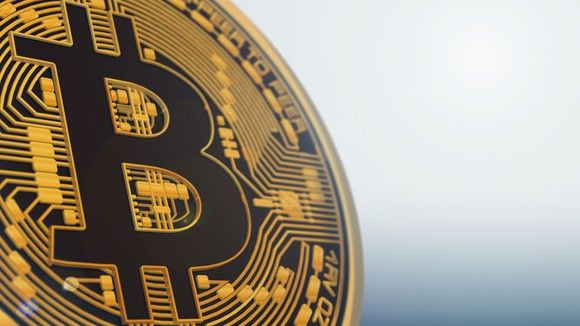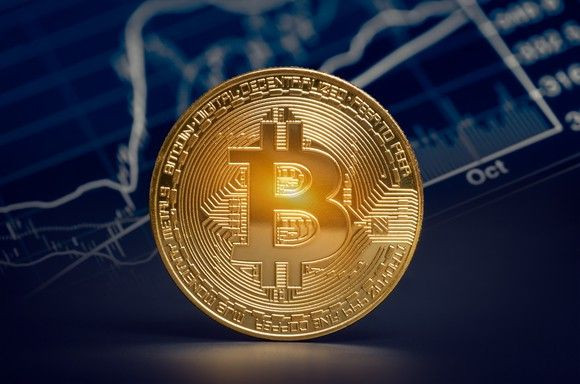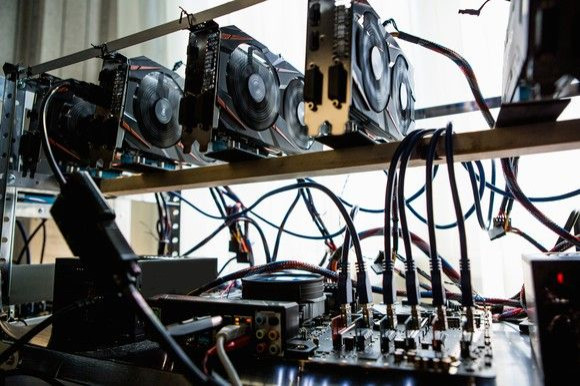Here's How Much It Costs to Mine 1 Bitcoin In The U.S.

This article originally appeared in Motley Fool.
Cryptocurrencies may have hit their first real hiccup in more than a year in recent weeks, but it's been one amazing ride for investors who've had the wherewithal and guts to stick it out. Last year, digital currencies rose by an aggregate of more than 3,300%, which is a return the stock market would have taken decades to deliver to investors. Even with crypto valuations being roughly halved since hitting an all-time high on Jan. 7, the combined market cap is up around 2,200% over where it began 2017.
As it has been since day one, bitcoin continues to lead the charge as the world's most valuable cryptocurrency by market cap. It's more likely to be accepted by merchants than any other virtual currency, and it's the cryptocurrency responsible for bringing blockchain technology into the spotlight.

Bitcoin Mining Is Highly Intensive
Bitcoin also happens to be one of the most minable cryptocurrencies in the world as a result of its popularity and relatively high liquidity as a virtual asset. Mining refers to a process whereby people or businesses with high-powered computers solve complex mathematical equations, which are a result of the encryption found on blockchains, to validate a group of transactions, known as a block. These miners compete with one another to be the first to solve these equations, as the first to do so is given a "block reward," which is paid out in crypto tokens. Thus, bitcoin miners are solving complex equations to be paid in fractions of bitcoin tokens.
That method of mining is known as "proof of work." It's a highly intensive method of validating transactions to ensure that the same token wasn't spent twice. In bitcoin's early years, mining could be done with high-powered graphics cards from the likes of NVIDIA and Advanced Micro Devices . Today, however, bitcoin mining requires expensive ASIC (application-specific integrated circuit) chips that have narrowed the prospective field of miners.
It also means it takes a lot of electricity to mine bitcoin. Validating transactions can be quite costly, depending on where you live.

The Cost To Mine One Bitcoin In The United States
According to a recently published analysis conducted by Elite Fixtures, which examined the electricity costs of 115 countries, the United States ranked as the 40th cheapest to mine a single bitcoin, with an average cost of $4,758. But given that bitcoin has shed more than 55% of its value since nearing $20,000 per coin in December, the margin to mine bitcoin has tumbled from as much as $15,000 per coin to less than $4,000 per coin in the U.S.
Of course, bitcoin miners in the U.S. are in considerably better shape in terms of margin relative to some other countries. A total of 24 countries examined by Elite Fixutres had mining costs for a single bitcoin that topped $10,000, with South Korean electricity costs pumping its aggregate bitcoin mining expense above $26,000 per token. That's more than three times higher than what each bitcoin is currently worth! In fact, taking into account bitcoin's move lower to about $7,800 within the past week, miners in 41 of the 115 countries examined would probably lose money mining bitcoin.
Mining Costs Are Only Likely To Increase
Making matters even worse, the cost to mine a single bitcoin is only likely to grow over time, for a couple for a couple of reasons. For starters, electricity is a basic-needs service for most everyone, and as such electric utilities tend to possess strong pricing power that allows them to pass along inflation-matching or –topping price increases. In short, inflation all but assures that electricity costs are going to move higher over time.
The bitcoin regulatory environment is also a potential issue for costs. Bitcoin and other cryptocurrencies are banned in around a half-dozen countries around the world, while the regulatory environment is growing more constrictive in other countries where it isn't banned. In China, for example, cryptocurrency exchanges and initial coin offerings have been stamped out, while mining operations have had their electricity usage throttled back. An increasingly regulated environment doesn't bode well for bitcoin mining costs.
Finally, it also can't be overlooked that the difficulty of mining bitcoin is only going to increase over time. There are more than 16.8 million bitcoin tokens in circulation, leaving fewer than 4.1 million left to be mined. As that difficulty increases and block rewards decline, the margin for mining bitcoin is probably going to decrease.
In other words, if bitcoin's price keeps falling, or if mining costs keep climbing, look for mining operations to become more consolidated in just a handful of the most profitable countries in the months and years to come.
Bitcoin is overhyped: 10 better buys for you now
When investing geniuses David and Tom Gardner have a stock tip, it can pay to listen. After all, the newsletter they have run for over a decade, Motley Fool Stock Advisor, has tripled the market.*
David and Tom just revealed what they believe are the ten best stocks for investors to buy right now... and investing directly in Bitcoin was noticeably absent from their recommendations! That's right -- they think these 10 stocks are better buys.
Sean Williams has no position in any of the stocks or cryptocurrencies mentioned. The Motley Fool owns shares of and recommends Nvidia, but has no position in any cryptocurrencies mentioned. The Motley Fool has a disclosure policy.





















